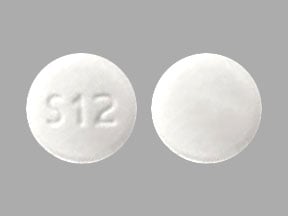
Erlotinib Coupons & Savings Card – Discount Prices from $99.00
Generic for: Tarceva
Erlotinib, known by the brand name Tarceva, is an oral medication prescribed for treating certain types of lung and pancreatic cancers. Specifically, it is used for metastatic non-small cell lung cancer (NSCLC) in some adults and for advanced, unresectable, or metastatic pancreatic cancer, often in combination with another drug called gemcitabine (Gemzar).
Erlotinib functions as a targeted anticancer treatment by inhibiting a specific protein called the epidermal growth factor receptor (EGFR), which is present in higher amounts on cancer cells compared to healthy cells. By blocking EGFR, erlotinib helps to slow or stop the growth and spread of cancer cells.
Patients should be aware that while erlotinib is an effective treatment option, it may cause side effects such as skin rashes and diarrhea. It is important to consult with healthcare professionals before starting treatment to ensure it is safe and appropriate for individual health needs.
Our coupons are free to use. Before paying, show the pharmacist your Erlotinib savings card to get your free discount. Use our filters below to edit the prescription box to match your needs. The Erlotinib prices will update based on your prescription needs. Above our Erlotinib coupons, you can change your location to see pharmacy prices and costs in other areas. We're here to help you buy Erlotinib at the lowest price with our prescription discount card.
My prescription
Edit
100MG, Erlotinib (30 Tablets)
Select pharmacy

CVS
$7123.13
COUPON PRICE
Walgreens
$99.00
COUPON PRICE
Albertsons
$1142.44
COUPON PRICE
Walmart
$6821.24
COUPON PRICEErlotinib savings card
Show this card to your pharmacist
Walgreens
$99.00
BIN
ID
PCN
GRP
019876
LH2BAF0E82
CHIPPO
LHX
Powered by
Erlotinib, known by the brand name Tarceva, is an oral medication prescribed for treating certain types of lung and pancreatic cancers. Specifically, it is used for metastatic non-small cell lung cancer (NSCLC) in some adults and for advanced, unresectable, or metastatic pancreatic cancer, often in combination with another drug called gemcitabine (Gemzar).
Erlotinib functions as a targeted anticancer treatment by inhibiting a specific protein called the epidermal growth factor receptor (EGFR), which is present in higher amounts on cancer cells compared to healthy cells. By blocking EGFR, erlotinib helps to slow or stop the growth and spread of cancer cells.
Patients should be aware that while erlotinib is an effective treatment option, it may cause side effects such as skin rashes and diarrhea. It is important to consult with healthcare professionals before starting treatment to ensure it is safe and appropriate for individual health needs.
Our coupons are free to use. Before paying, show the pharmacist your Erlotinib savings card to get your free discount. Use our filters below to edit the prescription box to match your needs. The Erlotinib prices will update based on your prescription needs. Above our Erlotinib coupons, you can change your location to see pharmacy prices and costs in other areas. We're here to help you buy Erlotinib at the lowest price with our prescription discount card.
More prescriptions for pancreatic cancer
coupons from$2908.87Save 82%
coupons from$99.00Save 93%
coupons from$241.51Save 49%
coupons from$9234.02Save 62%
coupons from$458.12Save 19%
coupons from$241.51Save 49%
More prescriptions for pancreatic cancer
Afinitor Disperz Save 82%coupons from $2908.87
Tarceva Save 93%coupons from $99.00
Everolimus Save 49%coupons from $241.51
Lynparza Save 62%coupons from $9234.02
Afinitor Save 19%coupons from $458.12
Zortress Save 49%coupons from $241.51
Erlotinib dosage forms
Use our Erlotinib 25MG coupon with prices from $219.60 for 30 Tablets. You can also use our Erlotinib 100MG coupon with prices from $99.00 for 30 Tablets. We have a Erlotinib 150MG coupon with prices from $91.80 for 30 Tablets.
Dosage Quantity Price from Per unit 25MG 30 Tablets $219.60 $7.32 100MG 30 Tablets $99.00 $3.30 150MG 30 Tablets $91.80 $3.06
| Dosage | Quantity | Price from | Per unit |
|---|---|---|---|
| 25MG | 30 Tablets | $219.60 | $7.32 |
| 100MG | 30 Tablets | $99.00 | $3.30 |
| 150MG | 30 Tablets | $91.80 | $3.06 |
